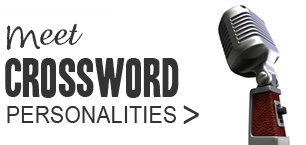
So, something like this:
[wordplay] to [solution]
is fine, as "to" indicates leading towards the solution.
Yes?? Not so fast!
The link word "to" can have different effect on different clues.
Take these two:
THC 9568: I almost adhere to a Wagnerian heroine (6) I SOLDE{-r}
and this one: A painter has turned back to desert (4) {SAH AR A}<-
Both have valid surfaces, correct wordplay + definition and the same link word "to", but the padding in the second clue is not so harmless. It can be argued that it leads the solver to look for a synonym of the verb "to desert" (to run away/abandon). The first clue does not have this issue, as "a Wagnerian heroine" can only be a noun.
In general, connectors before nouns cause less mischief than those before adjectives, verbs and such like. Take the case of articles in clues.
THC 9460: Monarch overwhelmed by a Pole's voice projection (5) TENO{-r+N}
THC 9577: Barbate Oriental in Germany, a spiritless revolutionary (7) {B{E}ARD ED}<-
The first clue lets you read "a Pole" as "N" so the connector doesn't interfere with the clue's parsing. The second clue does not provide that option, as "Germany a spiritless" can only give "DE A DRAB", the solver has to work out then that "A" must be discarded.
The rest being equivalent, my vote goes for clues that manage their misdirection without relying on superfluous link words for it.
PS: Taking a cue from this comment, I've not mentioned setters' names so that subconscious biases don't influence our estimation of clues!
Related Posts:
If you wish to keep track of further articles on Crossword Unclued, you can subscribe to it in a reader via RSS Feed. You can also subscribe by email and have articles delivered to your inbox, or follow me on twitter to get notified of new links.








 Follow on Twitter
Follow on Twitter Join us on Facebook
Join us on Facebook Get RSS
Get RSS

2 comments
While appreciating these perceptive comments, I am of the opinion that where the name of the clue-writer is known, it might be given.
I don't think readers are so naive as to jump to conclusions on merely looking at a name. Can one afford to be so prejudiced?
Besides, even the more careful compilers may go astray and the usually less careful clue-writers might momentarily soar to heights of great men reached and kept.
With expertise like yours, Chaturvasi Sir, I know that the setter's name will not create bias.
I am not sure that is the case with every solver. maddy said EXACTLY what I had been thinking yesterday - at times a particular THC compiler receives more flak than another for the same flaw, because solvers are disposed to like one setter and not the other.
I normally attribute the setter, chose to make an exception in this one post - I wanted the reader to focus on the clue and not the aura that the setter's name brings with it.
For the curious, the setter names can be found on the puzzle sheets: THC 9568, THC 9460 and THC 9577. The painter clue is made-up by me!
Post a Comment